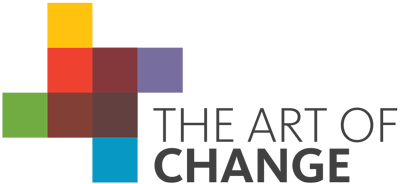
For close to eight decades, the Ford Foundation has helped mobilize movements for social justice by supporting ideas and the institutions and individuals who conceive and propel them. Nowhere is this legacy clearer—or richer—than in the arts, where we have stood behind creative visionaries for generations. The belief that the arts and creative expression are essential to justice is deeply embedded in our values.
In keeping with that core belief, the foundation is curating an extended conversation over the course of the year about the interplay of art and social justice around the world today. Our goal is to engage a wide cross-section of artists, cultural leaders, scholars, activists, and leaders in social justice movements to think with each other and with us about important questions, changing constructs, and emerging possibilities—and through these exchanges, to shed new light on the role of creativity and free expression in shaping a more equitable future for all. We’re calling this year “The Art of Change.”
A central component of The Art of Change is our visiting fellows program, which is enabling 13 distinguished artists and cultural leaders to conduct independent study and participate in the convenings, workshops, and other exchanges that will take place during the year. Drawn from around the world, the visiting fellows are all renowned in their field for their resolute focus on themes of arts and equity. Together they reflect the diverse and contemporary ways that creative expression and social justice are being twined.
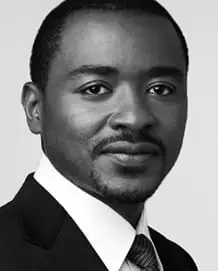
Robert Battle
Artistic director, Alvin Ailey American Dance Theater
Robert Battle is among the country’s leading choreographers and one of just three artists who have led the Alvin Ailey Dance Theater since its founding in 1958. Widely admired for his commitment to commissioning new work and spotting young talent, in 2012 Robert launched the New Directions Choreography Lab to develop the next generation of choreographers, a key component of his vision for Ailey’s future. Under Robert’s leadership, Ailey continues to perform and teach in numerous US cities and serve as one of the leading international ambassadors for American culture.
Robert began his career in dance at a high school arts magnet program in Miami. His exceptional talent earned him positions at the New World School for the Arts and subsequently the Juilliard School. He honed his dance technique while performing with the Parsons Dance Company from 1994 to 2001 and then founded Battleworks Dance Company to pursue his own choreographic ideas. Battleworks made its debut in Düsseldorf, Germany, and subsequently performed at leading dance venues around the world. Robert has been honored as one of the Masters of African American Choreography by the Kennedy Center for the Performing Arts and received the prestigious Statue Award from the Princess Grace Foundation–USA in 2007.
During his fellowship, Robert will continue his explorations of contemporary African American dance idioms, in partnership with choreographer Rennie Harris and members of the company.
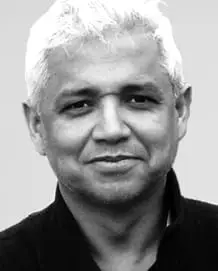
Amitav Ghosh
Novelist and essayist
Amitav Ghosh is a master storyteller and one of India’s most widely read authors. His fictional work explores historical narratives of colonialism and displacement, among other themes. The New York Times has called him an “archaeologist of the powerless,” and the Literary Review has said of his work that “all of his writing to date has traced connections across cultures.” He is also a widely published nonfiction writer, and his essays have been featured in the New Yorker, the New Republic, and the New York Times.
Born in Calcutta, Amitav travels widely and has lived in many countries, among them Bangladesh, England, Egypt, and the US. His work, which is available in at least 35 languages, is read all over the world. He has been recognized internationally for decades and has received numerous awards, including France’s Prix Médicis in 1990 for The Circle of Reason, India’s prestigious Crossword Book Prize in 2005 for The Hungry Tide, and the International Grand Prix of the Blue Metropolis Festival in Montreal in 2011 for lifetime achievement. He was also a joint winner, with Margaret Atwood, of the Dan David Prize in literature in 2010—an award recognizing outstanding scientific, technological, cultural, or social impact on our world. Sea of Poppies was shortlisted for the Man Booker Prize in 2008 and is currently on the shortlist for the 2015 Man Booker International Prize.
During his fellowship, Amitav will explore his lifelong interest in the natural world, and intersections between literature and climate change.
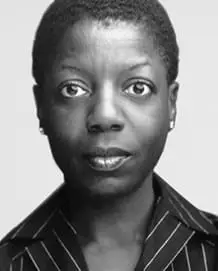
Thelma Golden
Director and chief curator, Studio Museum in Harlem
Thelma Golden serves as director and chief curator at the Studio Museum in Harlem. Thelma shook the visual arts world as a young curator at the Whitney Museum of American Art, where she was a member of the curatorial team for the landmark 1993 biennial and organized exhibitions such as the groundbreaking Black Male: Representations of Masculinity in Contemporary American Art of 1994. Trailblazing has been Thelma’s signature ever since. Returning to the Studio Museum in 2000, she has continued to demand attention for emerging artists and provoke new thinking about contemporary culture. Under her leadership, the Studio Museum has secured its position as an internationally important catalyst in advancing the work of artists of African descent.
Thelma has curated more than 20 exhibitions at the Studio Museum and led an innovative curatorial team in organizing many more. Her exhibitions and initiatives bring new perspectives to the work of established artists and draw attention to emerging voices. Under her leadership, the museum’s foundational Artist-in-Residence program has grown into a globally renowned launching pad for artists of African and Latino heritage. Thelma has also strengthened the museum’s public and educational programs, research and scholarship initiatives, and deep commitment to serving broad and diverse audiences from Harlem and around the world.
During her fellowship, Thelma will explore what has—and has not—changed in the nonprofit cultural sector over the past 20 years, and examine strategies for expanding the presence and visibility of curators of color in the museum field.
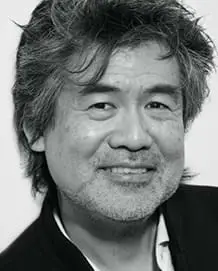
David Henry Hwang
Playwright, librettist, and screenwriter
David Henry Hwang is one of the country’s leading playwrights and theater artists, known for his pathbreaking work in illuminating the experience of Asians in the United States and exposing hidden dimensions of race, sexuality, and identity in contemporary life. Collaborating with diverse artists and producers, David has created works in repertory theater, opera, musical theater, film, and television and excelled as a writer, librettist, and producer while often crossing traditional lines of commercial and nonprofit work. His first play, FOB, was produced at the Public Theater and won an Obie Award in 1980. This launched his career and a robust partnership with Joseph Papp that extended to four other productions, including the Pulitzer Prize–nominated drama The Dance and the Railroad. In 1998 David’s play M. Butterfly won both the Tony Award for Best Play and the Drama Desk Award for Outstanding Play.
David’s prolific output has won him numerous other awards, including the PEN/Laura Pels International Foundation for Theater Award as a Grand Master of American Theater, the William Inge Award for Distinguished Achievement in the American Theater, the Asia Society Cultural Achievement Award, and the ISPA Distinguished Artist Award. In 2012, he was named a fellow of United States Artists, and he received the prestigious Doris Duke Artist Award in 2014.
During his fellowship, David will explore the effects of US demographic shifts on social anxieties, and how China’s authoritarian regime understands and uses the “soft power” of the arts.

Deeyah Khan
Filmmaker, music producer, and CEO of Fuuse
Deeyah Khan is a film director, music producer, and human rights activist. Born in Norway to parents of Punjabi-Pashtun descent, she began her career at 7 as a singer and stage artist. Deeyah experienced ongoing harassment, including threats against her life, from extremists who considered her musical career “dishonorable,” hostility that eventually forced her into exile.
Deeyah’s personal experience of repression has motivated her subsequent work. In 2010, she collaborated with Freemuse: The World Forum on Music and Censorship to produce Listen to the Banned, an album featuring censored artists from Africa, Asia, and the Muslim world. This album hit the top 10 on World Music Charts Europe.
In 2009, she directed and produced Banaz: A Love Story, a documentary about honor killings. The film won both an Emmy and a Peabody Award in 2013. While working on this film, Deeyah founded Memini, a global initiative to remember victims of honor killings worldwide. She is the executive producer of a forthcoming documentary about two female musical artists’ struggle against censorship and patriarchal social structures, and she is completing her second documentary, which examines the social and psychological roots of violent extremism and the rise of the jihadi movement in the West.
During her fellowship, Deeyah will work with her Fuuse colleague Dr. Joanne Payton to conduct research on violent extremism and the role of artists and artwork in bridging gaps between communities, challenging extremist worldviews, and exploring underlying social and psychological issues.
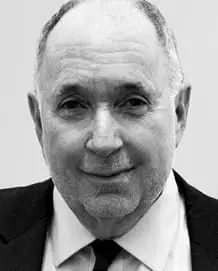
Arnold L. Lehman
Shelby White and Leon Levy Director, Brooklyn Museum
For 18 years, Arnold L. Lehman has served as director of the Brooklyn Museum, one of the oldest and largest fine arts collections in the nation. His first official act as director was to march in Brooklyn’s West Indian American Day Parade. Since then, he has focused on improving individual visitors’ experiences and animating the community’s engagement with the museum. In the past decade alone, museum attendance has doubled, visitation by people of color has risen to over 40 percent, and the average age of museum visitors has dropped from 55 to 35. Through daring and sometimes controversial exhibitions, imaginative installations of works from the permanent collection, public programs that connect with Brooklyn’s diverse populations, and active support for the borough’s extraordinary artists community, Arnold has helped reimagine the role of museums in 21st-century community life.
Arnold’s unique brand of leadership has been recognized repeatedly in both the museum field and the community at large. Prior to coming to Brooklyn, Arnold was director of the Baltimore Museum of Art for almost two decades and was adjunct professor of the history of art at the Johns Hopkins University. He served as president of the Association of Art Museum Directors, was co-chair of Mayor Bill de Blasio’s Arts and Culture Transition Committee, and currently chairs the Cultural Institutions Group of New York City.
During his fellowship, Arnold will conduct research and consider ways to increase the presence of people of color in leadership roles in the museum profession.
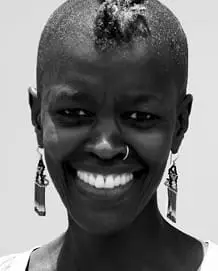
Joy Mboya
Executive director, GoDown Arts Centre
Joy Mboya is a performer and cultural activist who currently directs the GoDown Arts Centre, the leading nonprofit multidisciplinary arts facility in Nairobi, Kenya. Educated as an architect, Joy has led the center’s development as a site for artistic experimentation, cross-sector partnerships, and creative collaboration locally, within the region, and internationally. An outspoken advocate for artists, she has spearheaded a variety of ambitious projects, including the visual narrative Kenya Burning (2008) and the Nairobi-wide festival Nai Ni Who (2013), and developed programs showcasing artists’ work within the center’s facility as well as at other spaces in the city.
Widely recognized for both her programming vision and her managerial skills, Joy was appointed to serve on the Governing Council of the Kenya Cultural Centre, which oversees the Kenya National Theatre, and was also elected to serve on the continental steering committee for the ARTerial Network, a pan-African consortium of individuals and organizations in craft, dance, film, literature, visual arts, and new media that supports the work of Africa’s cultural sector. Joy has received numerous awards recognizing her work. The Head of State Commendation Medal in 2009, for instance, marked her contributions to the development of Kenya’s creative economy, and the Order of the Golden Warrior State Commendation in 2013 celebrated her outstanding leadership in the field.
For her fellowship, Joy will explore new ways to strengthen connections between artists and build artistic capacity, and to fortify policies affecting Kenya’s creative sector.
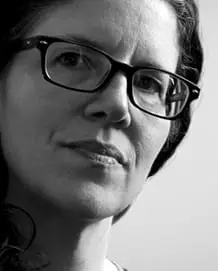
Laura Poitras
Filmmaker
Laura Poitras is a filmmaker, journalist, and artist whose work bravely tackles some of the most pressing political and social issues of our day. She recently finished a trilogy of films on the post-9/11 war on terror. The final film in the trilogy, CITIZENFOUR, focuses on Edward Snowden’s exposure of the National Security Agency’s broad and invasive monitoring of citizens. It won the 2015 Academy Award for Best Documentary Feature, along with awards from, among others, the British Film Academy, Independent Spirit Awards, Directors Guild of America, and Cinema Eye Honors. In her acceptance speech, she said that NSA surveillance not only is “a threat to our privacy” but also endangers “our democracy itself.” As a result of her work, Laura has been on government watch lists since 2006 and has been detained repeatedly at the US border. She edited CITIZENFOUR in Berlin, Germany, to protect the footage and her sources.
Laura has received many honors for her work, including a MacArthur Fellowship in 2012. With Glenn Greenwald, she won the 2013 George Polk Award for national security journalism and shared in the 2014 Pulitzer Prize for Public Service. With Greenwald and Jeremy Scahill, she co-founded the Intercept.
Her fellowship will be devoted to researching new work for her first solo museum exhibition at the Whitney Museum of American Art, where she will create an environment of immersive installations that build on the themes she has been exploring in her filmmaking.
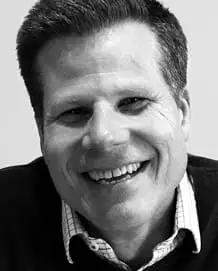
Bill Rauch
Artistic director, Oregon Shakespeare Festival
Bill Rauch has been challenging our ideas of what theater is, and who makes theater, since 1986 when he co-founded Cornerstone Theater. With Bill’s unwavering beliefs that artistic expression is civic engagement and access to a creative forum is essential to the health of every individual and community, Cornerstone pioneered new approaches to produce outstanding new work based on the concerns of specific communities. Bill served as artistic director there until 2006.
Mixing ultra-urban Los Angeles with very rural Oregon, Bill guest directed several plays at the Oregon Shakespeare Festival, one of the largest nonprofit theaters in the country, while still leading Cornerstone. In 2007 he was invited to become artistic director of OSF. Over the past eight years, he has led a process of reenvisioning the festival’s overall artistic program and its relationship to its communities and has directed four world premieres and 15 other productions. Among other initiatives, he launched American Revolutions: The U.S. History Cycle to explore important moments in the evolution of American democracy and American identity. One of its commissions, All the Way, written by Robert Schenkkan and directed by Bill, last year won the Tony Award for Best Play and earned Drama Desk and Outer Critics Circle Award nominations for best directing.
Bill will use his fellowship to explore issues related to diversity and inclusion in American theater, among them enabling more young directors of color to work with the classics, diversifying audiences for regional theater, and fostering innovations in gender-blind casting.

Toshi Reagon
Singer, composer, musician, and producer
Toshi Reagon has been performing professionally since she graduated from high school. Described as a “one-woman celebration of all that’s dynamic, progressive, and uplifting in American music,” she has mastered folk and funk, blues and rock, and sacred and traditional music formats and is now working in music/theater and opera. Toshi’s irresistible personality and activism, combined with her singular approach to music and song, has a galvanizing effect on her audiences. She has collaborated with diverse musical artists and her band, BIGLovely, to perform at venues around the world. She has produced more than 15 albums and benefit recordings.
In addition to her work on stage, Toshi’s music has appeared in numerous films and television shows. Toshi’s work as a curator includes the Schomburg Center’s Women’s Jazz Festival; the Black Rock Coalition’s Deep Roots of Rock and Roll; and Celebrate! The Great Women of Blues and Jazz, a 17-piece women’s blues and jazz ensemble. She’s also collaborated as conductor, musician, and instrumental composer/arranger, with Robert Wilson and Bernice Johnson Reagon, on the operas The Temptation of St. Anthony (2003) and Zinnias: The Life of Clementine Hunter (2013). She is currently working on adapting Octavia E. Butler’s postapocalyptic novel Parable of the Sower into an opera.
During her fellowship, Toshi will organize a New York City–wide festival, WORD*ROCK*&SWORD: A Festival Celebration of Women’s Lives—All Are Welcome, focused on women’s rights, talents, and artistry, and the impact of creativity on communities.
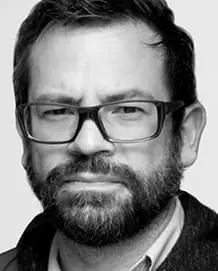
Pedro Reyes
Artist and activist
Pedro Reyes uses sculpture, theater, seminars, public performances, and participation to address the interplay of physical and social space, calling for political and economic participation. Less interested in critiquing institutions than in reimagining them, Pedro uses art as a way to encourage collective and individual agency.
His works take on various forms, from penetrable vinyl sculptures to television production. In 2008, Pedro initiated his ongoing project Palas por Pistolas. In the first year, 1,527 guns were collected in a voluntary donation campaign and were melted down to produce the same number of shovels, to plant the same number of trees. This led to Disarm (2012), in which hundreds of musical instruments were made from 6,700 weapons given to Pedro by the Mexican army. Disarm is now a traveling workshop in which teens and young adults transform weapons into instruments and write and perform pacifist songs.
Pedro has had solo exhibitions in Canada, Japan, Mexico, and the US. He has been featured in numerous group exhibitions in France, Germany, South Korea, the United Arab Emirates, and the US, and he participated in the 50th Venice Biennale. His most recent project is The People’s United Nations (pUN) (2013), a summit at which 193 delegates from every country in the world convene for a series of activities centered on global governance.
During his fellowship, Pedro will continue his planning for a series of annual festivals that will use the arts to reduce the presence of drugs and guns in communities across Mexico.
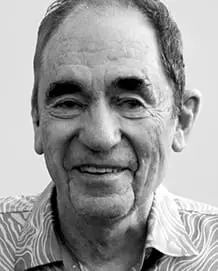
Albie Sachs
Former judge on the Constitutional Court of South Africa
Albie Sachs is one of the most important leaders in South Africa’s struggles against apartheid and the suppression of human rights. At 20, in 1955, he participated in the Congress of the People, where the Freedom Charter was adopted, and following law school, he defended people charged under racial statutes and security laws. Jailed for this work, he eventually had to leave the country. In 1988, Albie nearly lost his life when a bomb exploded under his car. Undaunted, he worked on writing South Africa’s democratic constitution and was appointed to the Constitutional Court by Nelson Mandela in 1994. His term on the court came to an end in 2009.
Winner of the Tang Prize for the Rule of Law in 2014, he is currently using a portion of the prize to tell the story of the making of South Africa’s democratic constitution and the Constitutional Court, which abolished capital punishment and ordered recognition of same-sex marriages. A prolific author, Albie is one of only two people to win the Alan Paton Award twice—in 1991 for his book The Soft Vengeance of a Freedom Fighter and in 2014 for The Strange Alchemy of Life and Law. A documentary about his life, Soft Vengeance: Albie Sachs and the New South Africa, by Abby Ginzberg, was released last year.
During his fellowship, Albie will work to ensure that the story of the making of South Africa’s constitution reaches the most marginalized person in the tiniest corner of the land. He will also seek to integrate the film Soft Vengeance into antiretaliation and antibullying programs.
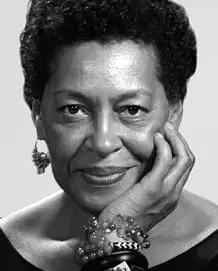
Carrie Mae Weems
Visual artist
Considered one of the most influential American artists, Carrie Mae Weems has investigated family relationships, cultural identity, class, political systems, and the consequences of power. Weems has developed a complex body of art that has sustained her ongoing dialogue within contemporary discourse for over 30 years. In a review of her recent retrospective in the New York Times, Holland Cotter wrote, “Ms. Weems is what she has always been, a superb image maker and a moral force, focused and irrepressible.”
Weems has received numerous awards, grants, and fellowships, including the prestigious Prix de Rome, National Endowment for the Arts support, the Herb Alpert Award in the Arts, and the Anonymous Was a Woman Award. One of her greatest honors came in 2013 when she received the MacArthur Fellowship, the “genius” grant. Weems is represented in public and private collections around the world, among them the Metropolitan Museum of Art, New York; the Museum of Fine Arts, Houston; the Museum of Modern Art, New York; and the Museum of Contemporary Art, Los Angeles.
She will use her fellowship to explore new ways to support artists of color, particularly those who are deeply rooted in and engaged with the communities in which they live.
The Ford Foundation
The Ford Foundation is an independent organization working to address inequality and build a future grounded in justice. For more than 85 years, it has supported visionaries on the frontlines of social change worldwide, guided by its mission to strengthen democratic values, reduce poverty and injustice, promote international cooperation, and advance human achievement. Today, with an endowment of $16 billion, the foundation has headquarters in New York and 10 regional offices across Africa, Asia, Latin America, and the Middle East.
Media Contacts
Press Line
Tel (+1) 212-573-5128
Fax (+1) 212-351-3643
[email protected]